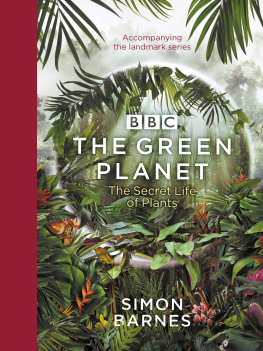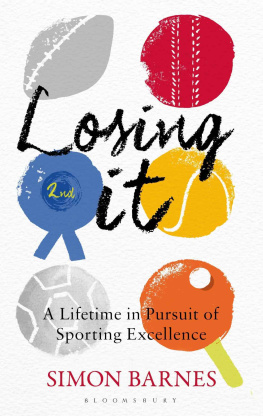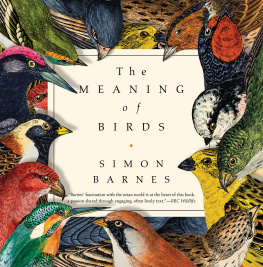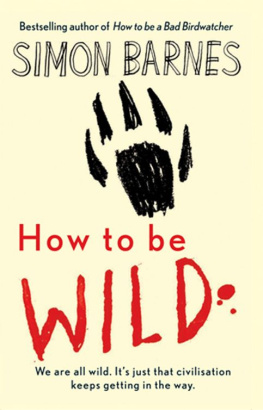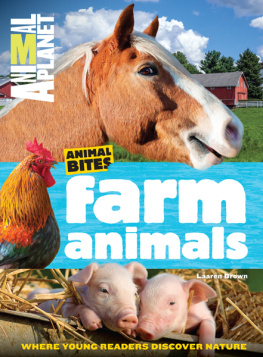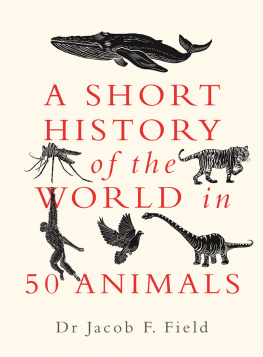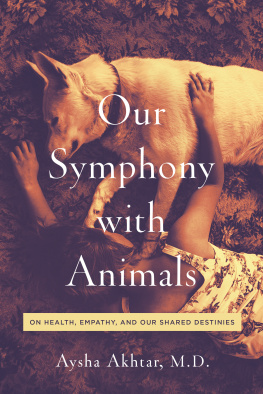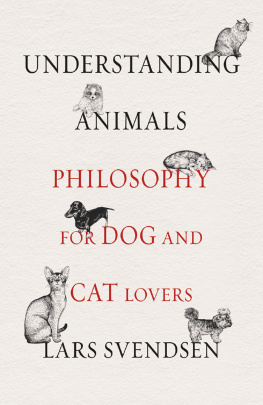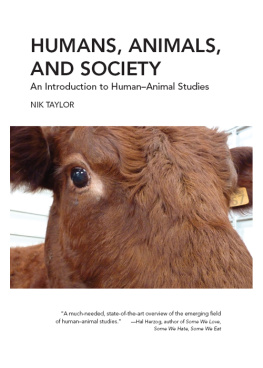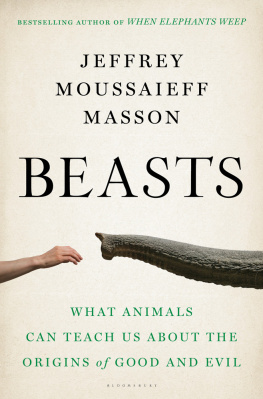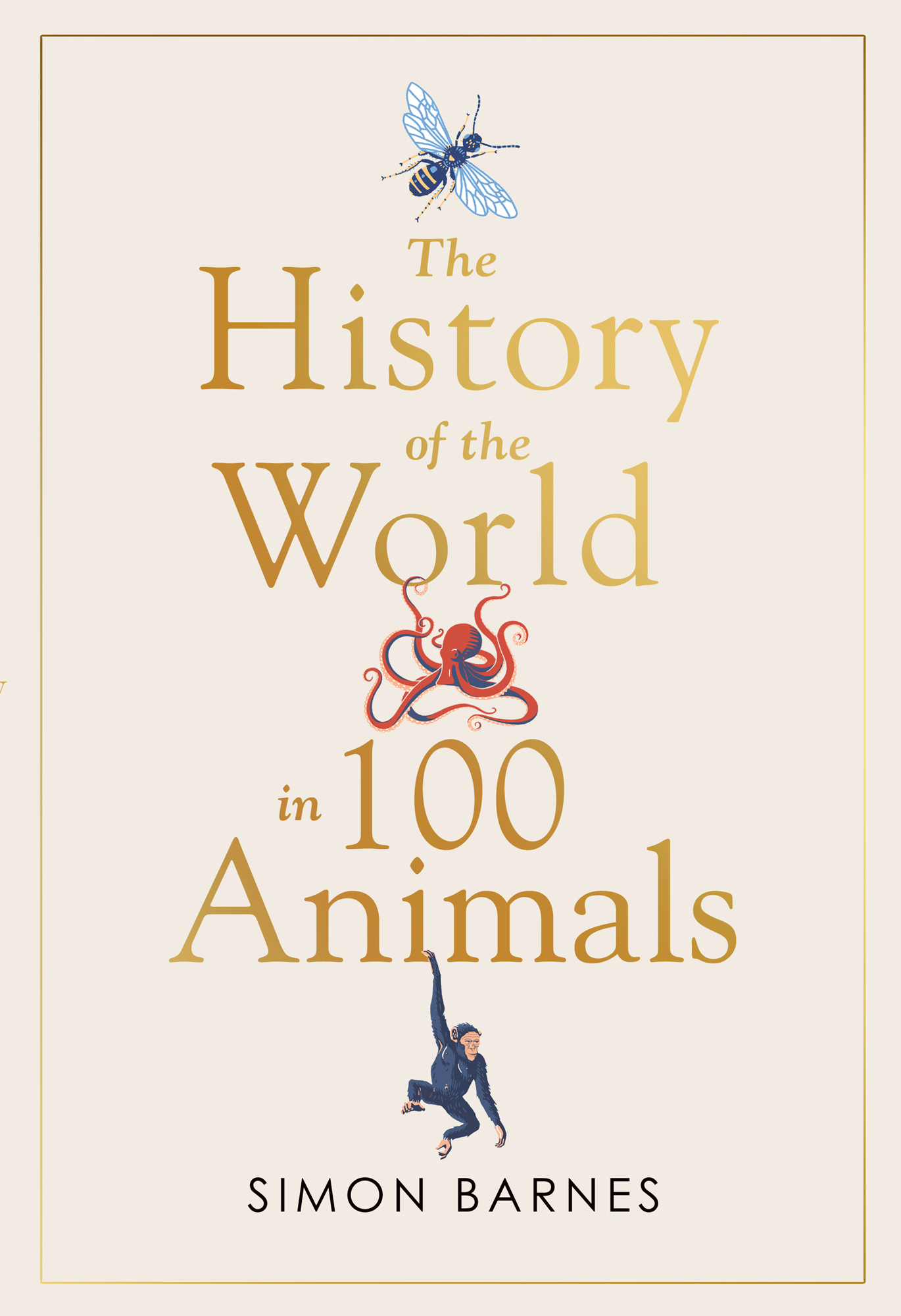
Detail from The Entry of the Animals into Noahs Ark by Jan Brueghel the Elder (15681625).
FOREWORD
The difference between man and the higher animals, great as it is, certainly is one of degree and not of kind.
Charles Darwin, The Descent of Man
We are not alone.
We are not alone in the universe. We are not alone on the planet. We are not alone in the wilderness. We are not alone in the farmed countryside. We are not alone in cities. We are not alone in our homes. We are not even alone in the bath or the shower: Demodexmites live on our facial skin.
We are humans and we love the idea of our uniqueness. Our thoughts, philosophy, religion, art and even a good deal of science are all based on the assumption of human uniqueness so much so that we divide the world into animals and humans. The word inhuman is the worst insult in human culture, and we reserve it for Adolf Hitler and Pol Pot, overlooking the fact that a Labrador puppy, a kitten with a ball of wool and the horse the queen rides are all equally inhuman.
The fact is that we humans are as much members of the animal kingdom as the cats and dogs we surround ourselves with, the cows and the fish we eat, the bees who pollinate so many of our food plants and those mites on our faces. We are vertebrates, we are mammals, we are primates, we are apes and we share more than 98 per cent of our DNA with chimpanzees and bonobos.
Our lives, our history and our thoughts are inextricably intertwined with our fellow animals. Non-human animals shaped human lives when our ancestors first walked on the savannahs of Africa 3 million years ago and they have done so ever since.
We have domesticated animals for food and for transport. Animals powered agriculture and so made civilization possible. Animals drove warfare right up to the twentieth century; my grandfather was a sergeant in the Royal Garrison Artillery in Salonika in Greece during the First World War and worked with the horses that pulled the big guns.
A species of flea came close to destroying human civilization in Europe. The slaughter of a species of bovines was used to create one civilization and destroy another. Rats have been our despised fellow travellers across the centuries and yet they have provided some of our greatest medical discoveries. Pigeons made possible the biggest single breakthrough in the history of human thought.
We have filled our minds with animals and made them symbols of good and evil. In many religions, including Christianity, God is frequently represented in the form of an animal. We have doves of peace and eagles of war. We have turned to the sea, found a series of ideal foods and hunted the relevant species close to extinction. We humans have looked at the slaughter on the seas and vowed to reform as a species and to make peace with the world and our fellow animals.
We have taken animals into our homes to love and to be comforted by. We have created myths of unimaginable ferocity from the creatures of the wild; we have also used them to create myths of peace-loving nobility. We have tried to understand the world and our place within it by means of non-human animals, and in doing so we have led ourselves through revolutions in the way we understand our lives and the way that we run the planet that we live on.
There are many estimates of the number of species in the animal kingdom: lets choose 10 million which is round about the middle to be going on with. It can be argued that every one of those 10 million has affected humanity in some way or other, even if we dont know about it. And it can also be argued that humanity has affected every single non-human species.
It follows that choosing my century of animals selecting 100 from 10,000,000 has been a difficult business. Some are obvious: cattle and rats have always been with us. Others are about a more recent awareness: like gorillas, like the species found only on the Galpagos Islands. Some have a profound but less than obvious relationship with our species, like earthworms and wolves. Some species have timeless myths attached to them; others have inspired more modern myths, often subverting the old. Some have changed the human worldview.
I write here in lean unlovely English, but what I write about is not, even remotely, confined to England, to the English or to the English-speaking world. It is a global thing.



